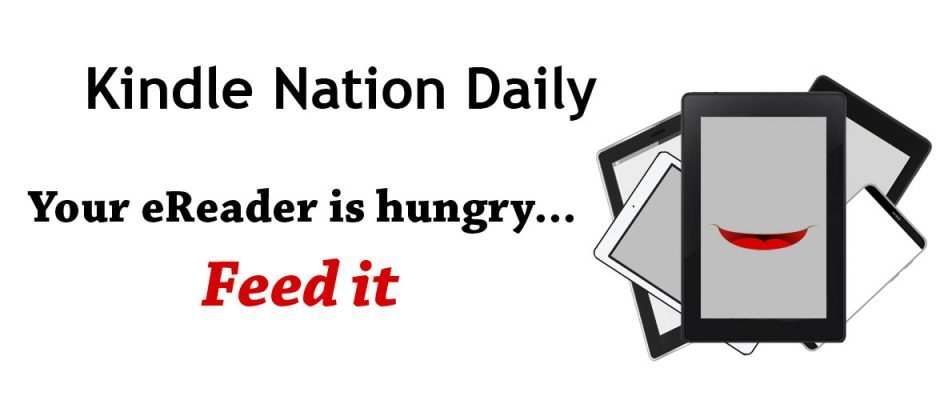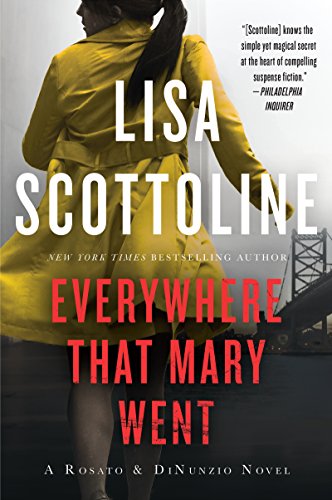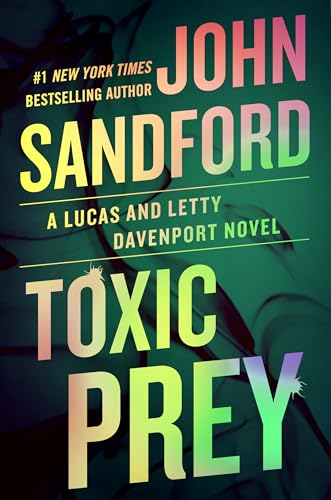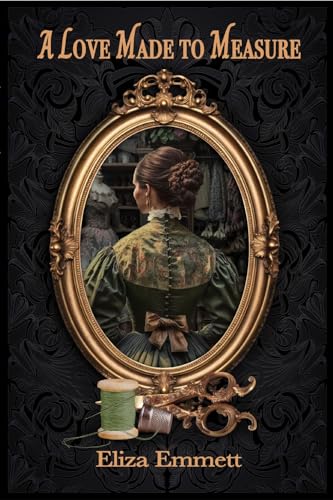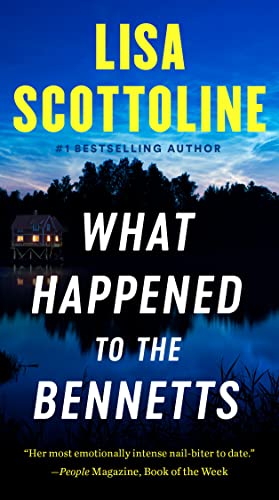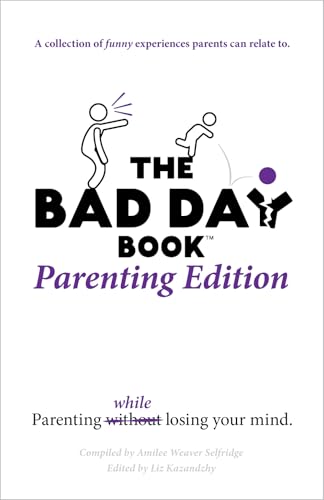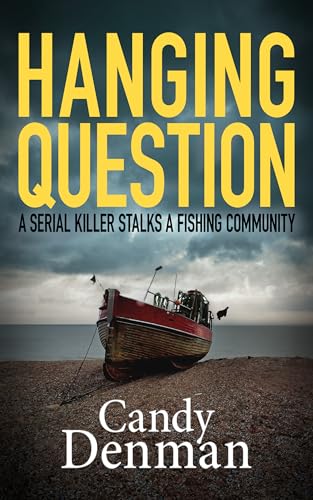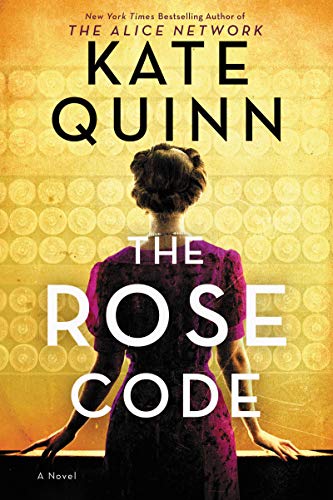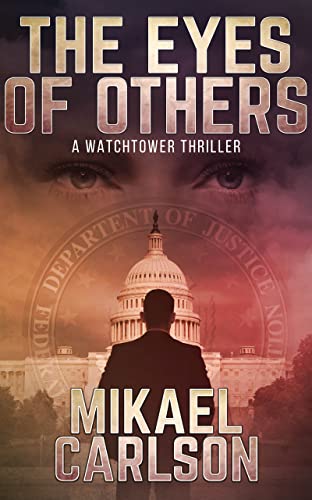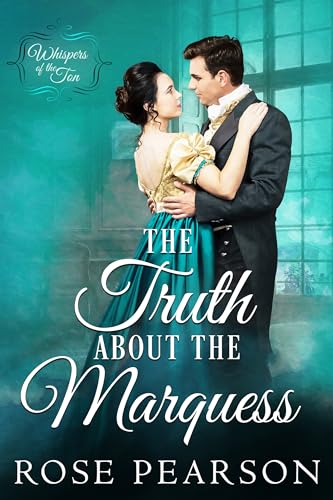Copyright © 2010 by L.J. Sellers and reprinted here with her permission.
Chapter 1
Wednesday, Oct. 18, 2:45 p.m.
Elizabeth stared at the file on her desk, heart pounding with indecision. Say it. Her forehead went damp, and she reached for a tissue, avoiding her patient’s gaze. Ms. McClure sat calmly, waiting for her to speak. The patient had come to the Assisted Reproduction Clinic in good faith. How could Elizabeth violate that trust? She was a doctor!
The thought of Dr. Gibbs, her chief of staff, discovering her deception horrified her more than anything. She owed him so much. He’d promoted her to director of genetic science her third year with the hospital, passing over several male associates. Then Columbia had honored her with its Scientific Excellence award just last year. To risk all that. . . . Just say it.
McClure shifted in her chair. Elizabeth glanced at the file again and took a deep breath. “The test results show you have the genetic marker associated with cystic fibrosis.”
There, she’d done it. She’d told the lie that set the plan in motion.
Her patient’s eyes widened, then filled with despair. Elizabeth knew how she felt. Hearing that you couldn’t or shouldn’t have a baby was the most devastating news a woman could receive.
She wanted to reach out and comfort the woman. Instead, she leaned back and spoke casually.“Don’t be too alarmed. One of twenty-two Caucasians is a carrier. But unless the father is also a carrier, your chances of having a healthy child are still good.”
“What does that mean?” McClure’s light brown eyes flickered with anger.
Elizabeth understood the anger too. But she couldn’t let herself feel kinship with this woman. McClure had something she wanted, something she was entitled to. She had to be strong to take it from her.
“In practical terms, it means before you have yourself artificially inseminated, the donor should also be screened for the cystic fibrosis marker.” Damn, she was making it sound too easy. Elizabeth didn’t want her coming back to the clinic any time soon. So she continued, “The test is more difficult with the limited amount of DNA in sperm, thus more expensive. If you wait until you’re pregnant, then have an amniocentesis, you’re faced with the decision of either giving birth to a diseased child or aborting it. Perhaps you should take some time to read up on CF. You may decide to consider other options.”
“Like what?”
“Adoption.” Just saying the word made the old bitterness rise in her throat. Elizabeth swallowed hard to keep it down. “The joy of children isn’t limited to genetic offspring.”
If only that were true.
The summer of her tenth birthday crashed on her consciousness like a tidal wave. Standing by her mother’s grave, watching the casket being lowered, Elizabeth had wanted to throw herself in and let the earth swallow her, too. But her grief then was only the beginning. The whispering of relatives at the funeral was followed by the sudden crushing knowledge that she’d been adopted, that her beloved mother was not really hers.
Elizabeth had never considered adopting a child, even when she learned her ovaries were worthless, damaged-so she believed-by pelvic infections she’d suffered as a child. Before she could compose herself, another memory engulfed her. The drunken sweaty face of Ralph, her adopted father, grimacing in a strange blend of pain and joy as he forced himself on her.
Elizabeth felt the tremors starting, the buried rage fighting to surface. She’d never been to a counselor, never spoken of it to anyone. Even after learning she was sterile, she’d kept her silence. But the rage never diminished. It surfaced less often now, but with the same intensity.
Her patient’s voice, hauntingly familiar, broke through the anguish. “Do you have any literature about cystic fibrosis that I could take with me?”
“I’m sorry, I don’t,” Elizabeth snapped.
She had to get this woman out of her office. Just looking at her weakened Elizabeth’s resolve. McClure had the same wide cheekbones and stubborn chin, the same wavy hair. “Here’s the name of an organization you can call for information. They can also put you in touch with a support group.”
Elizabeth stood and handed McClure a card, willing her to leave. She didn’t want to see her again until she was unconscious on the operating table. Elizabeth wished there was another way, but the laparoscopy was a simple procedure and wouldn’t hurt her at all.
What about afterwards, she asked herself for the hundredth time? The drugs would wipe out McClure’s memory, but what if the oocytes didn’t fertilize? What if the transfer failed? Could they keep her until she ovulated again?
Don’t think about it, she told herself. David was a great embryologist. If anyone could make her pregnant, he could.
“Thanks,” McClure said quietly, tucking the card in her purse. She squared her shoulders and wiped mascara from under her eyes before turning to leave.
Elizabeth admired her composure, her refusal to cry or complain like so many did at the first sign of trouble. She was a sturdy woman physically, too. An inch or so taller than Elizabethand meatier all over. Not overweight; just robust, healthy. Elizabeth felt of pang of jealousy. She had always been pale and thin from spending long hours in the lab and skipping meals.
“Good luck.” Elizabeth bit the inside of her cheek. She had a sudden urge to call her back. Maybe they could become friends and eventually she could ask . . .
No. She couldn’t take the risk.
The woman was gone and Elizabeth was alone again. Collapsing back in her chair, she started to tremble. It had begun. In her whole life, she had never been so frightened, and so excited. Suddenly she had to see the slides again.
She jumped up and walked briskly down the corridor to the lab. Her assistant, a young woman with one eye glued to a microscope, ignored Elizabeth as she passed. She unlocked the lab door and hurried to the drawer where she kept enlarged film of DNA slides. From the back, she pulled a special file marked only by initials, then inserted two enlargements into a projector.
There they were. Those single-stranded DNA probes lined up like matching bar codes from the supermarket. Elizabeth had noticed McClure’s facial similarities the first time she’d come into the clinic. She had compared their DNA on a whim. Elizabeth stared, checking for inconsistencies, then smiled when she didn’t find any.
There was no doubt. McClure was her sister.
Chapter 2
Tuesday, Oct. 24, 10:36 p.m.
The restaurant’s double doors burst open as Jenna reached for her keys. Damn, sixty seconds too late, she thought. Even though technically the place was closed, Jenna forced herself to smile at her late-night customers. They didn’t smile back. A short heavy man, face covered by a bandanna, thrust out a gun and said, “Piss me off and I’ll kill you.”
Jenna’s heart skipped a beat, then pounded frantically as a startled cry burst from her throat.
“Where’s the money?” A second man stepped forward. He was tall and scrawny, a kid with a ponytail. Black and red paint covered his face but didn’t hide a large boil on the side of his nose. Without the gun he would have seemed comical.
Jenna wasn’t laughing. She knew she had to respond, but her brain scampered from one thought to another and couldn’t form a sentence.
“Listen, bitch.” The skinny kid grabbed her hair and pressed his gun, a big gray semi-automatic, under her chin. “Tell me where the money is or I’ll kill you and anybody else in-“
“Everyone on the floor, now!” the short guy screamed as he pivoted toward the sudden murmuring in the lounge. A bourbon fog filled the air where his voice had been.
He’s drunk, Jenna realized. Panic surged through her body, making her feel weak and confused. She didn’t know if she was supposed to lie down or get the money. The kid dug his fingers into her scalp and dragged her across the narrow lobby into the darkened lounge. She bit the inside of her cheek to keep from screaming. Stale cigarette smoke and sweet alcohol permeated the air.
The kid’s lips curled in a sick sort of smile as three guests, the bartender, and a waitress dropped to the floor. Jenna tried to mentally count how many others were in the building. Two or three guests still in the dining area, plus Antonio, the broiler cook, Evin, a new dishwasher, and three, maybe four food servers.
The short guy seemed to read her mind. “Check the back,” he shouted suddenly. “Get everyone in here so I can see ’em.”
The pleased look disappeared as the kid let go of Jenna’s hair. He scurried through the bar, high-stepping over the middle-aged men in suits on the floor. Jenna wished she could lie down too; her legs shook so badly she thought they’d collapse. But she stayed upright, afraid to move.
“About the money.” The short guy lifted the small dark gun to her temple.
“In the till, behind the bar.” Jenna forced the words through clenched teeth.
“Open it for me.” His eyes darted nervously between Jenna and the men bunched together on the stained blue carpet. The top of his head was bald but straggly dark curls covered the back of his neck. Even with the bandanna, he looked like a creepy dishwasher named Bob she’d worked with in Seattle when she was still a waitress.
“You! Outa there first,” he shouted over the counter. Jenna held her breath. Nate, her bartender, spent his free time writing letters to the editor and arguing philosophy for sport. But he crawled out from behind the bar without a word. Jenna let out some air. Thank God he’d kept his mouth shut.
As she stepped toward the register, an older waitress who’d been with Geronimo’s since it opened hurried into the lounge. She was waving a bill. “Anybody got change for a twenty?” Carmen stopped short when she spotted the men in suits on the floor.
“I’ll take that,” the creep said, stepping away from Jenna to reach for Carmen’s twenty. “And anything else you’ve got in your pockets.”
Jenna winced. Most of the evening’s receipts were walking around with the servers who acted as cashiers. As soon as “Bob” and the kid realized it, they’d turn their guns on her crew. Fear snaked through her gut. They could be killed. It happened all the time. People gunned down during robberies for no apparent reason. She thought about Nate’s five-year-old twin boys and Carmen’s three teen-age daughters. Those kids would be devastated if these people didn’t come home.
Jenna fumbled for her key to the till, hoping to distract Bob with a drawer full of cash. The rest of the crew shuffled in, hands above their heads, eyes darting between Jenna and the short gunman. The kid had a grip on Tami, an eighteen-year-old waitress who sucked back tears with little gulping noises. “Get on floor, all of you.”
As her employees dropped down, the restaurant was silent. Even the roar of the dishwasher had stopped. Jenna knew there were still guests on the other side of the partial wall that separated the lounge from the main dining area, but no one made a peep.
Then the register drawer popped open with a loud ping. Startled, the kid jerked and fired a round, shattering the mirror behind the bar.
Tami screamed as shards peppered the liquor bottles and stuck in her hair. Jenna’s knees buckled but she held on. Ears ringing, she refused to collapse or cry out as she so badly wanted to do. Even though some of the crew was older, she was in charge here; everyone counted on her. Jenna desperately wanted to believe that if she kept herself together no one would get hurt.
Jenna snatched upthe cash in the till, her fingers fumbling to hold the stack of bills. She passed it all to Bob, who grabbed it with one hand and stuffed it into his half-zipped jacket. Tami started to whimper.
“Shut up!” the kid shrieked, “or I’ll shoot your stupid mouth off.” He kicked Tami to make his point. Tami let out a brief cry. Nate started to speak up, but Jenna gave him a look. Be quiet, please, Jenna silently pleaded. You have little boys. Don’t get yourself killed. She wanted to say something, to turn the two men’s attention to herself. As badly as she’d always wanted children, she hadn’t been lucky enough to have them yet. She didn’t have a husband either-or brothers and sisters. There was no one to miss her if she didn’t come home. But Jenna’s throat wouldn’t cooperate, except to swallow meekly.
One of the guests from the main dining room suddenly bolted for the front. As he reached the door, he turned and looked back. Bob fired twice into the lobby. Jenna heard a shout and the soft thump of a body hitting the carpet. Then her legs finally buckled and she went down. The bar tile was wet and cold under her knees, yet Jenna wanted nothing more than to press her body against the floor, close her eyes, and wait for it to be over.
“Nobody moves for at least five minutes!” Bob bellowed, jerking his gun from one person to another. The kid started to say something, but Bob cut him off. “We’re outa here.” He stepped back toward the lobby.
“But we’re supposed to lock ’em in the freezer.” The kid hadn’t moved.
“Forget it, let’s go!”
The kid looked over at Nate, shrugged, then kicked him in the face before running out. Not until the front doors slammed did Jenna’s body relax. She fought the urge to cry great gulping sobs at the sheer relief of being alive. After many deep breaths, she willed herself to get up and call 911.
The guest, a small man in his early forties, had been shot in the right side of his chest. Except for the blood oozing from the hole where his pocket had been, he was perfectly still. Jenna knelt next to him and checked for a pulse or a breath. Nothing.
She cursed softly, hot tears still pressing the back of her eyes. She couldn’t remember a thing she’d learned in the mandatory CPR class she’d taken just eight months ago.
Carmen had followed her up front, then vomited after one look at the wound. Nate, the only other person who would have been helpful, was bleeding profusely from his nose. How do you stop bleeding in the chest?
“Somebody bring me some towels.”
The man wasn’t breathing. Four minutes. The number popped into her head. The brain could only survive four minutes without oxygen. She had to get his heart pumping. She leaned over him and began chest compressions.
“I brought towels,” a gentle, unfamiliar voice said. Jenna looked up. The man had a camera hanging from his neck.
“Press them against his wound, please.”
For six long minutes, they worked together over Arthur, their faces inches apart. Jenna became aware the stranger had had pesto for dinner and was clean shaven. His presence gave her comfort and she didn’t know why.
Finally, the paramedics arrived.
Chapter 3
Wednesday, Oct 25, 1:03 a.m.
Eric Troutman had quietly taken a few pictures of Jenna as she gave compressions to the wounded man. He still had guilt about observing and recording other people’s trauma. But this was the best story he’d ever witnessed, and he couldn’t let it go without at least a couple of shots. He’d almost bolted when she asked him to help. The sight of blood sometimes made him queasy. But she had been so determined, so fearless; how could not do his part?
Jenna McClure. He’d learned her name from one of the restaurant staff. Eric was impressed. She was more than just good copy. She was someone he wanted to know. He’d stopped by the hospital long enough to find out Brentwood had died and was now headed downtown to the police station, hoping to find Jenna. He had visions of an in-depth interview and a front-page story in the Oregonian. Maybe even a second piece, a personality profile, for Northwest Lifestyle. His career needed a good jolt.
He’d been freelancing since being laid off the newspaper a year ago. He had a lot less money now, but he liked the features he writing a lot more. After ten years on the crime beat, the stories all started to sound the same. No one ever told the whole truth anyway, not the cops, the criminals, or the victims. He’d become desensitized to people’s traumas and had hated himself for it.
He was happier now, but sometimes he missed the excitement, the adrenaline rush of being a half-step ahead of a big breaking news story. The year he’d won the Pulitzer had been the best and worst of his life. His series on abusive foster parents and the Children’s Services personnel who looked the other way generated the largest response the paper ever had. Before the ruckus died down, the Children’s Services director was replaced and a citizen review board established. But the children still haunted him.
Eric shuddered and reached for the radio, needing to shake off the images of the battered children. The gaping hole in the dashboard reminded him the radio had been stolen a few weeks back. Still wanting to brighten his mood, he sang the chorus of “I Feel Good,” an old James Brown song.
It was his own fault the radio had been ripped off. After he sold his police scanner and CB radio, he’d quit locking his car, figuring no one would bother a ’72 Firebird. If they did, he wanted to make it easy. Used radios were cheap and easy to come by; windows were not. He could afford a nicer car, but he couldn’t bring himself to spend the money. Not yet, anyway. His Firebird still ran fine and had a good working heater. Besides, he liked old cars. Today’s designs didn’t compare to the classics.
The downtown streets were deserted at one o’clock in the morning except for an occasional party car, the occupants oblivious to everything but their own music. Eric ignored the speed limit signs. After working the crime beat for years he knew most of the cops and could probably talk himself out of a ticket. He was determined to get to the police station before they finished questioning Jenna. He had to see her tonight. The compulsion was overwhelming, and Eric never ignored his instincts. It was more than just a story. Jenna was too special to let her slip away, unexplored.
Eric was surprised by Jenna’s attractiveness when he saw her pass through the open security door and walk into the police department lobby. He hadn’t noticed it during the chaos. He’d been aware of the overall package, her athletic build and sun-kissed complexion, but hadn’t really taken in the caramel-colored eyes and sensuous, unpainted lips. She’d let her hair down now, a thick mass of curls that matched her eyes and seemed slightly out of control.
Eric shook his head. He’d sworn never to get hung up on a woman’s looks again. The gorgeous ones were always trouble. Fortunately, she wasn’t really his type. The executive-style matching skirt and jacket were a turnoff. Eric hated suits on anybody, male or female. They intimidated him, made him feel instinctively rebellious. But as she stood there, eyes blinking, Jenna looked so tired and vulnerable that Eric wanted to put his arms around her. Instead he offered his hand.
“Eric Troutman, freelance journalist.”
She hesitated, then leaned forward and gave his hand a quick powerful squeeze.
“Jenna McClure. Thanks for helping back at the restaurant. What do you want?”
“To buy you a cup of coffee. Hear your story.” He smiled his best ‘you’re-gonna-love-me’ smile.
“You were there. There’s not much more to tell. ”
“I was in the dining room and missed most of the action.” Eric kept smiling. “I want to hear your back story too.
“I have to go home and get some sleep.” She turned away.
“Tomorrow?” Eric couldn’t let her get away. He had to see her again. “I’ll buy you lunch. Anywhere you like.”
